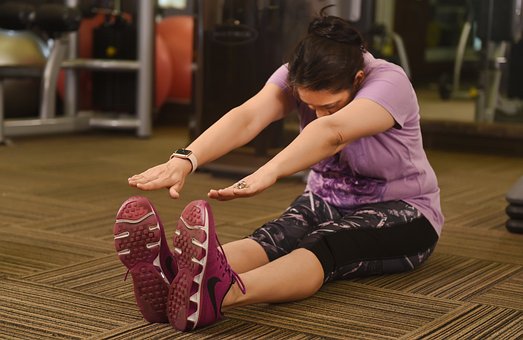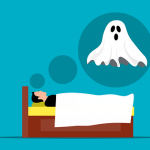Around the age of 40, many people start to gain weight, particularly around their waistlines. Even if you have a healthy diet and you exercise regularly, your metabolism may start to slow down, making it more difficult to lose weight.
When you were younger, it might have been easier to stay at a healthy weight.
In the past, you may have been able to eat whatever you wanted and if you gained weight, you would just need to make a few small changes to your diet and increase your exercise routine to lose the extra pounds.
Although age-related weight gain is something that can happen to anyone as they get older, there are some things that can be done to manage it. Diet and lifestyle changes can help to promote weight loss after the age of 40.
Why You Gain Weight After 40
Age-related weight gain is often genetic. For many people, getting older is simply a byproduct. There are many biological factors that can cause weight gain after the age of 40.
Most people’s hormones start to change in their mid-30s and 40s. There is a shift which involves less estrogen production for women and less testosterone production for men. This causes fat to start to accumulate around the middle of the body.
Genetics: Many people are genetically predisposed to weight gain. Scientists have discovered that certain genes play a role in how much fat cells a person has as well as where they are stored in the body.
There are some aspects of your physical appearance that are determined by your genes and which you cannot change. For example, you may find that you store excess fat in the same areas as other members of your family.
Muscle loss typically starts in a person’s 40s and becomes progressively worse as they age.
Although the number and size of muscle fibers decline with age, researchers believe that the motor units that stimulate those fibers fire with less regularity over time. This is why older adults are often recommended to do strength training.
Lower metabolism: There are a couple of things that happen to your metabolism after the age of 40. Firstly, your basal metabolic rate decreases and secondly, you use less energy when exercising.
Lifestyle Factors to Consider
Other than many age-related reasons, there are other factors that play a role in weight gain after 40.
Weight gain is often caused by lifestyle choices, such as diet and exercise. The good news is that you have complete control over these lifestyle factors.
Unhealthy Eating Habits
If you’re gaining weight as you age, don’t worry or fixate on it too much. When you are trying to lose weight, it may be tempting to follow a fad diet that promises quick weight loss. However, these diets are rarely effective in the long term and you may end up gaining the weight back.
Instead of stressing over a number on the scale, focus on feeling better from the inside out. This begins with following a healthy, balanced diet that is full of nutrient-rich whole foods. Remember, you really are what you eat.
As people get older, they often gain weight due to poor diet and lack of nutrition. Eating junk food can make you fat.
You should consume less sugar and fewer refined carbs and processed foods.
Current dietary guidelines set forth by the U.S. The Department of Agriculture suggests that people should eat a variety of foods that are rich in nutrients, such as brightly colored fruits and vegetables, lean protein, whole grains, low-fat dairy products, and healthy fats.
A diet rich in essential vitamins and minerals can help manage weight and improve overall health. If you want to stay full and avoid overeating, choose foods that are high in fiber.
Start Exercising After 40
It’s always a good time to start exercising, even if you’re starting to see age-related weight gain. If you couple regular exercise with a healthy diet, you’re more likely to see success in terms of weight loss, according to research.
Exercising for weight loss is a great idea, but there are other reasons to start exercising as well. Instead of seeing exercise as a quick fix for your physical appearance, try to think of it as something you’re doing for your mental and physical health for the long term. If you shift the focus of your exercise routine away from weight loss, it may seem less daunting and you will be more likely to get moving.
You can start by doing some basic exercises every day, like walking or streaming a cardio class before work. If you want to improve your health by exercise, here are some tips to follow.
1. Set a Weekly Exercise Goal
If people want to avoid gaining weight as they age, they need to exercise more often and more intensely.
To get additional health benefits such as weight loss, you might need to do twice as much cardio as the American Heart Association recommends.
If you’re brand new to exercise, it’s a good idea to start off slowly and gradually increase the intensity of your workouts.
After a few weeks of doing simple cardio and strength training exercises, you can move on to more difficult workouts. The amount of exercise you need to lose weight will depend on how much weight you want to lose.
The goal is to do moderate exercise for 30 minutes every day, and then slowly increase the amount of time you exercise.
This level of exercise can help improve your cardiovascular health by reducing your cholesterol and blood pressure.
This is a great place to start your exercise journey whether you’re just getting into it or are coming back after a long break. If a person sticks to a workout routine for a few weeks, they will become stronger and have more endurance.
2. Be Consistent
To maintain your weight after you have lost it, you don’t need to exercise as much as you did to lose the weight.
Around 150-250 minutes of exercise per week is a sustainable goal for many people. Staying consistent with exercise can help prevent weight regain.
Being consistent also means allowing yourself some flexibility. For example, one week you might only be able to find time for 150 minutes of exercise, and another week you might be able to do 300 minutes or more.
Working out too much can lead to injury, burnout, or overtraining, which can be very frustrating when trying to lose weight. It is important to be consistent, but it is also important to maintain a balance.
If you’re feeling pain or emotional distress, listen to your body and take a break. It is important to take care of yourself and to give your body the time it needs to heal.
2. Make Time for Exercise
Many 40-somethings have little free time to work out due to having desk jobs, commuting, and family activities.
It is imperative that you find time to fit in at least 2 1/2 hours of moderate physical activity every week in order to maintain a healthy weight and overall health. Make sure to pencil in some time for yourself in your calendar and make those times a priority.
3. Build Muscle
As people age, they naturally lose muscle mass, particularly women after menopause. When you have more muscle, your body burns more calories. This makes it harder to lose weight and keep it off.
Regular strength-training can help gain muscle and maintain muscle definition.
4. Eat More Fruits and Veggies
READ MORE: Risks Of Excess Weight









